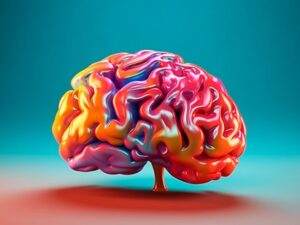
Every 34 seconds, someone experiences a heart attack.
February is American Heart Month, and while you may already know that heart disease is the number one killer in America, were you also aware that heart disease is a major cause of disability, too?
84% percent of those 65 and older die from heart disease. Yes, the risk of heart disease and other heart complications increases as we age, but this doesn’t have to be an inevitable, inescapable part of aging. Making healthy lifestyle and nutrition choices can help protect you from heart disease.
Here’s what you need to know about your heart as you age.
Cardiovascular Changes with Age
Past the age of 65, people are much more likely to develop life-threatening heart issues like coronary heart disease (also called heart disease) or heart failure. They are also more likely to suffer a heart attack or have a stroke. In some instances, heart disease is also a major cause of disability, cutting severely into millions of older adults’ quality of life.
Why is this? It’s simple, really: the aging process affects the heart and the blood vessels. As we age, our heart can’t beat as fast as it used to during physical activity or periods of stress. When we get older, the heart walls thicken and stiffen, which makes it harder for the heart to relax and fill adequately between beats. Additionally, for many people, fatty deposits on the artery walls build up over the years, increasing the risk of developing heart disease.
Other common changes that happen to our circulatory system as we age? Our arteries can stiffen and harden over time, just like our hearts in a process referred to as arteriosclerosis, which leads to hypertension (high blood pressure).
It’s important to take note of this crucial piece of information:
Arteriosclerosis is not always a normal part of aging.
Whether or not you are genetically predisposed to heart disease, arteriosclerosis does not necessarily have to be part of your aging process. Several of the risk factors contributing to the hardening of the arteries associated with arteriosclerosis are modifiable behaviors. Heart disease and hardening of the arteries only develop when plaque builds up over time, limiting the heart’s blood flow. Eventually, the heart muscle can weaken, leading to heart failure.
Your heart may also weaken or become damaged because of things like:
- Heart attacks
- Long-term hypertension
- Diabetes
- Chronic, heavy alcohol use
What Are the Symptoms of Heart Disease?

Many of the leading causes of heart disease can be prevented or reversed by making healthy lifestyle choices. Early heart disease doesn’t have many signs or symptoms, which is why it’s important to keep up with annual visits with your primary care physician.
It’s also important to understand the potential symptoms so you can slow, stop, or even reverse some of these issues before they become too dangerous if you start to exhibit symptoms. You should always contact your doctor if you are experiencing chest pain but also if you are experiencing any of the following warning signs:
- Pain, numbness, or tingling in your shoulders, arms, neck, jaw, or back
- Shortness of breath when you are active, at rest, or when lying flat
- Chest pain when you are physically active that improves when your body is at rest
- Syncope or lightheadedness
- Dizziness
- Confusion
- Headaches
- Cold sweats
- Nausea and/or vomiting
- Fatigue
- Swelling in the ankles, feet, legs, stomach, and/or neck
- A reduced ability to be physically active
- Issues completing normal activities
What Are the Risks of Heart Disease?
Multiple risk factors play a role in your heart health and whether or not you may be likely to develop heart disease.
The risk for heart disease increases for women over the age of 55 and for men over the age of 45. You may also be at a higher risk of developing heart disease if you have close family members with a history of heart disease. While it’s impossible to control your genetics or your age, there are a few factors that are within your control:
- Obesity
- Insulin resistance or diabetes
- High cholesterol and/or high blood pressure
- Being physically inactive
- Smoking
- Making poor nutritional choices
- Clinical depression
Maintaining a Healthy Heart: What You Can Do
You can take steps to keep your heart healthy at any age, but it does take work and may require you to make changes and modifications to your daily habits. Here’s what you can do to keep your heart healthy:
- Get at least 30 minutes of moderate exercise (like brisk walking or seated exercises if you have mobility issues) almost every day
- Give up smoking
- Eat a heart-healthy diet that’s rich in fruits and vegetables and avoid saturated fats, salt, fatty meats, and foods that contain cholesterol
- Keep an eye on your blood pressure and cholesterol levels, as well as your blood sugar levels and your risk of diabetes
- Limit your alcohol intake, as alcohol can exacerbate conditions like high blood pressure, high cholesterol, and arrhythmias, which can contribute to heart disease
- Minimize stress and seek healthy outlets to relieve your stress
- Maintain a healthy body weight for your size and body type
Many seniors choose to live in senior living communities where they can gather with friends. These communities offer nutritious, heart-healthy meals, physical fitness groups, and wellness activities to promote a healthy lifestyle that makes it easy for seniors to maintain overall wellness. Not only is this good for your heart health, but physical activity can help combat osteoporosis, too.
At Elder Care Alliance, we’re passionate about promoting senior health at any age. This is part of our focus on holistic wellness, which encompasses a person’s physical, emotional, intellectual, social, vocational, environmental, and spiritual wellbeing. To learn more, contact us to set up a visit at one of our communities.




















